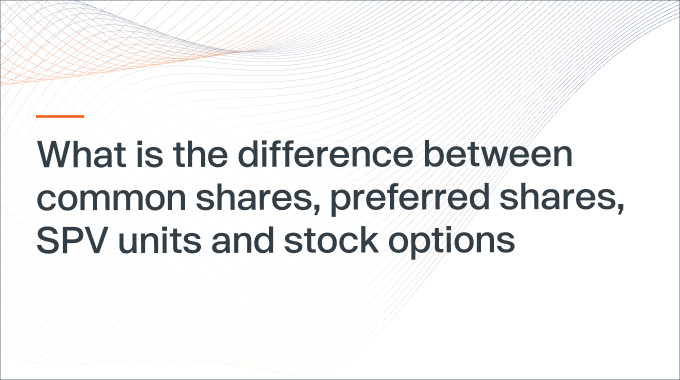Deal types: The differences between a direct trade and a single-company Forge fund offering trade
For investors and shareholders navigating the private market, understanding the structure of a transaction can be as important as selecting which company to buy or sell. On Forge, there are multiple deal types through which private shares can change hands, with two of the most common being direct trades and single-company Forge fund offerings.
While both facilitate potential access to private company equity, they can differ significantly in structure, process(es) and the investor experiences that occurs.
In this guide, we’ll break down the differences between a direct trade and a Forge fund offering trade on Forge, explain how unit transfers work and highlight what investors and shareholders should know before engaging in either transaction type.
Forge’s single-company Forge fund offering trades: Executed via special purpose vehicles (SPVs)
Single-company Forge fund offerings are structured via instruments called special purpose vehicles (SPVs), which pool investor capital to purchase shares in a private company. Instead of buying shares directly from a seller, investors buy units in a Forge fund offering that owns the shares.
A core benefit of a Forge fund offering is that it is well-defined and rigidly structured, so that buyers have confidence knowing that the offering’s terms have been validated and certified by Forge. For a seller of shares, it allows them to more efficiently introduce large blocks of shares to the market that may otherwise be hard to liquidate because of the many individual buyers that would be needed to satisfy the purchase of a large block. For a share issuing company, this may also be seen as a benefit because buyers are managed and consolidated by Forge on an issuing company’s cap table, and Forge can be viewed as a reliable partner helping manage the operational burden private share sales require.
Features of single-company Forge fund offering trades
- One-to-one / unit-for-unit: Investors gain exposure to a company by purchasing units via an SPV—the investment vehicle that Forge deploys Forge fund offering—not by holding shares directly.
- Pooled capital: Multiple investors can participate in the same Forge fund offering, increasing accessibility to an issuing company and lowering minimum investment amounts, when compared to some direct deals.
- Lower minimum investment threshold: Forge fund offerings typically require a lesser minimum investment amount when compared to direct trades. In some cases, a Forge fund offering may accept transactions as low as $5,000.
- Issuer visibility: Forge fund offerings can potentially help streamline issuer compliance by consolidating shareholders on the cap table.
- Professional administration in Forge fund offerings: Forge handles fund formation, administration and investor servicing, simplifying ownership logistics for share buyers. Another key feature, which is described in greater detail below, is access to unit transfers, which can close in a matter of days.
Forge fund offerings enable investors to participate in curated opportunities while Forge manages fund formation, capital calls, tax documentation and communications.
Unit transfers: Fund liquidity in action
A unit transfer refers to the sale or purchase of interests in an existing Forge fund offering. For example, if an investor wants to exit their position in a Forge fund offering that holds shares in a private company, they can list their units for sale on Forge. A new buyer can then purchase those units, gaining proportional exposure to the underlying assets of the Forge fund offering.
Core features of a unit transfer include:
- The Forge fund offering already exists: No new capital is raised or company shares purchased.
- Potential liquidity for fund investors: Unit transfers allow fund participants to achieve liquidity without selling the actual private shares the Forge fund holds.
Unit transfers are particularly attractive in periods of high investor demand or when interest in specific companies peak, allowing Forge clients to potentially realize gains or reallocate capital with less friction.
Direct trades: One-to-one share transfers
A direct trade on Forge involves a direct transfer of shares between a seller and a buyer. These transactions typically occur when a shareholder of a private company lists their shares on Forge’s platform, a buyer expresses interest and the two parties agree on pricing and terms. Forge then helps facilitate the transaction, handling counterparty verification and giving guidance to see that company transfer restrictions are followed.
If you can meet the transaction requirements, it does come with some benefits. But note, this may be more limited in availability, dependent on company approval and/or require higher minimums.
Features of direct trades
- Cap table representation: These are one-to-one transactions, meaning a seller transfers shares directly to the buyer. Often, direct trades can take up to 45 calendar days to close from the date of agreement on the trade’s terms, and money is typically paid to the seller once the issuing company approves the transfer. This also means companies may be more sensitive to who is on their cap table and potentially block trades.
- Transfer restrictions may apply: Forge is familiar with the transfer restriction processes for hundreds of companies. For companies that Forge has not worked with in the past, Forge puts the responsibility on the shareholder to discover the individual transfer restrictions of the respective company. For example, some companies may enforce right-of-first-refusal (ROFR), co-sale rights or board approval requirements.
- Minimum investment size: Direct trades often have higher minimums than Forge fund offering trades, based on the number of shares a seller is offloading and the price per share. A company may require higher minimums in order to approve the addition of a new investor to their cap table. These transaction minimums typically start at $100,000, though amounts as low as $50,000 may be considered. Please note that while purchases at lower dollar values may be available in some cases, these transactions tend to be very limited and may only be available through a Forge fund.
Direct trades are often most appropriate when a buyer and seller are matched for a specific block of shares and the share issuer authorizes a clean transfer with no, or limited, transfer restrictions.
Comparing direct trades and single-company Forge fund offering trades
| Feature | Direct Trade | Forge Fund Trade Executed Through An SPV |
|---|---|---|
| Ownership | Direct shares in private company | Units in a fund that owns shares |
| Structure | A one-to-one direct trade | A pooled investment vehicle |
| Minimum Investment | Higher $ amount (varies by share block) |
Lower $ amount (varies by fund terms) |
| Transfer Restrictions | Potentially subject to issuer approval and rights | Negotiated with issuer; it can potentially be easier due to a single Forge fund appearing on the cap table. Note: often, unit transfers are not subject to company transfer restrictions because there is no individual ownership on the cap table. |
| Issuer Visibility | Yes, the issuer has direct visibility into the shareholder | Indirect visibility: the issuer can see that the Forge fund (the SPV) is the shareholder |
Which trade type is right for you?
Choosing between a direct trade and a single-company Forge fund offering depends on your investment goals, capital, risk tolerance and the target company’s transferability rules.
- You might consider a direct trade if you want direct ownership of private company shares, are buying a large stake and the company allows transfers.
- A fund trade may be better suited if you want a smaller allocation, prefer access to fund administration or are accessing a company that restricts direct shareholder transfers.
Forge’s marketplace gives investors and shareholders access to both paths — and Forge offers guidance to help you choose which one makes the most sense for them.
Final thoughts
The private market continues to mature, bringing with it more transaction types and investment structures. At Forge, whether you’re trading directly or participating in a Forge fund offering, you’re transacting with a partner that prioritizes transparency and access. Understanding the nuances between direct deal trades and Forge fund offering trades is key to making confident and more informed private market investment decisions.



